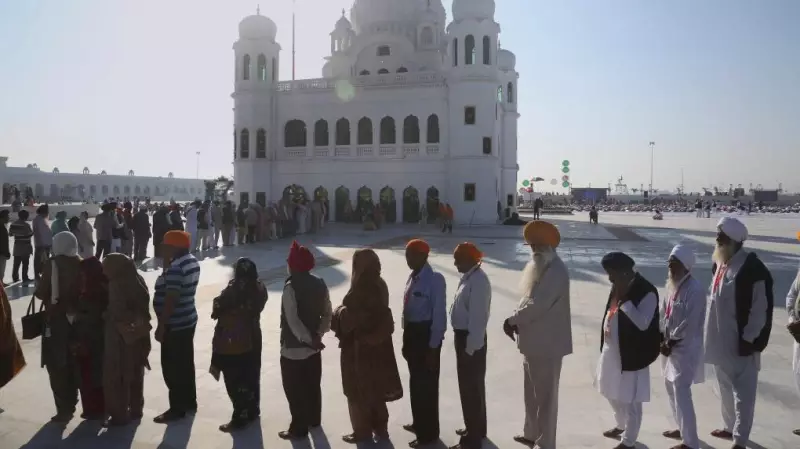
In a powerful display of faith transcending political tensions, hundreds of Indian Sikh pilgrims have made history by crossing into Pakistan through the Wagah border crossing. This marks the first significant movement of people between the nuclear-armed neighbors since deadly clashes brought the region to the brink of conflict in May.
A Pilgrimage of Peace
The emotional crossing saw devotees traveling to visit several holy sites in Pakistan, including the sacred Gurdwara Panja Sahib in Hasan Abdal. For many, this pilgrimage represents not just religious devotion but also a hopeful step toward normalized relations between the two countries.
This border opening comes at a critical moment in India-Pakistan relations. The Wagah crossing had remained largely closed to pilgrims since May, when tensions escalated dramatically following cross-border strikes and the downing of aircraft.
Diplomatic Thaw or Temporary Relief?
While Pakistani officials have welcomed the pilgrims with traditional hospitality, security remains exceptionally tight. Both governments have implemented extensive measures to ensure the safety of the religious travelers during their week-long spiritual journey.
The timing of this border reopening is particularly significant, occurring just weeks before the highly anticipated opening of the Kartarpur Corridor. This permanent border crossing will connect two important Sikh shrines divided by the international boundary.
What This Means for Regional Relations
Regional experts are watching this development closely, noting that religious tourism has often served as a confidence-building measure between the historical rivals. The successful completion of this pilgrimage could pave the way for more substantial diplomatic engagement.
For now, the sight of pilgrims crossing what has been one of the world's most tense borders offers a glimmer of hope that people-to-people connections might eventually help bridge the political divide between these two nuclear powers.





